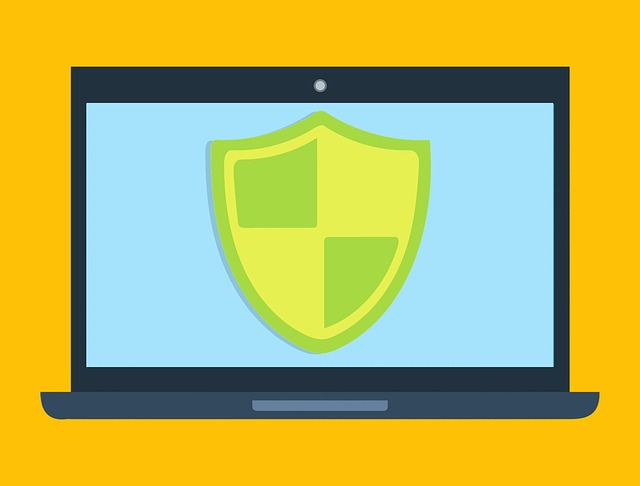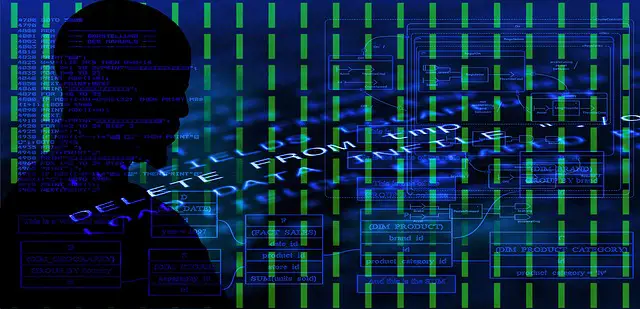Why is Antivirus Important? Anti-Virus Software Benefits

In today’s digital landscape, cyber threats are constantly evolving and becoming more sophisticated and the importance of antivirus software cannot be overstated. Antivirus software plays a critical role in safeguarding digital security and protecting individuals, businesses, and organizations from a wide range of threats. This article provides an overview of the importance of antivirus software and highlights why it AV is critical to maintaining a secure digital environment.
Antivirus software is designed to protect against malware, which encompasses various malicious software such as viruses, worms, trojans, ransomware, spyware, adware, or any other malicious program. Malware can infiltrate systems and networks, leading to a range of detrimental consequences including data breaches, financial losses, and compromised privacy. Antivirus software acts as a defensive barrier to malware, detecting and blocking known malware before it can cause harm. By continuously scanning files, applications, emails, and other data in real-time, antivirus software acts as a proactive defense mechanism, preventing malware from executing and spreading throughout the system.
One of the key advantages of antivirus software is its ability to detect and remove known threats. Antivirus relies on extensive databases of malware signatures to identify malicious code and patterns. Whenever a file or application matches a known malware signature, the antivirus software can swiftly quarantine and eliminate the threat, protecting the system from infection. This feature is crucial as it enables users to mitigate the risks associated with well-known malware strains that have been widely documented and analyzed.
However, the importance of antivirus software extends beyond known threats. Cybercriminals are constantly developing new techniques and exploiting vulnerabilities that were previously unknown. This is where antivirus software with advanced features like heuristic analysis and behavior-based detection becomes vital. Heuristic analysis allows antivirus software to detect and block malware based on suspicious behavior and characteristics, even in the absence of a specific malware signature. By analyzing code and monitoring system behaviors, antivirus software can identify and prevent zero-day attacks, which are attacks that exploit unknown vulnerabilities such as new viruses or new malware. This proactive approach ensures that users are protected against emerging threats and vulnerabilities that have not yet been addressed by security patches or updates.
Another significant aspect of antivirus software is its role in maintaining data and privacy protection. With the increasing prevalence of online transactions and the storage of sensitive information, it is crucial to have robust protection against keyloggers, spyware, and other malicious entities that seek to steal personal and financial data. Antivirus software helps safeguard personal information by detecting and blocking these threats, ensuring that sensitive data remains confidential and secure.
Modern antivirus software often includes web protection features that enhance safe browsing. These features help users identify and avoid malicious websites, phishing attempts, and other online scams. By providing warnings and blocking access to potentially harmful websites, antivirus software prevents users from falling victim to fraudulent activities and compromising their security.
Many operating systems come equipped with standard antivirus solutions that are typically free. For example, Windows devices have access to Windows Defender. These solutions are typically as good (or nearly as good) as many paid solutions, and offer a wide range of benefits.
In this article, we will dive into the fundamentals of AV solutions. We’ll cover what AV is, how it works, and how it can help defend your assets and identity.
What is Antivirus?

Antivirus software, commonly known as an antivirus or AV, is a specialized program designed to detect, prevent, and remove malicious software (malware). The primary function of AV is to protect computer systems, networks, and even mobile devices from various types of malware, including computer viruses, worms, trojans (trojan horses), spyware, ransomware, and adware.
Antivirus software works by deploying a number of techniques to identify and combat malware threats. One of the key methods used is signature-based detection. This involves comparing files and code against an extensive database of known malware signatures. When a match is found, the antivirus software recognizes the file as malicious and takes appropriate action to quarantine or remove it.
In addition to signature-based detection, many modern antivirus applications utilize heuristic analysis and behavior-based detection. Heuristic analysis involves examining the behavior and characteristics of files and programs to identify potential threats. By analyzing code and monitoring system behaviors, antivirus software programs can detect malware even if a specific signature is not available. This capability is particularly useful in identifying and mitigating attacks from advanced threats.
Antivirus software typically operates in real-time, constantly scanning files, applications, emails, and other data to detect and block malware. AV may also include features such as automatic updates to ensure that the antivirus program remains up to date with the latest virus definitions and security patches.
The importance of antivirus protection lies in its ability to provide proactive defense against malware threats. By detecting and blocking known malware, as well as identifying suspicious behaviors and emerging threats, anti-virus software plays a crucial role in maintaining the security and integrity of computer systems and protecting sensitive information.
Antivirus Provides Data and Privacy Protection

Antivirus tools play a critical role in providing data and privacy protection by safeguarding sensitive information and preventing unauthorized access to personal and confidential data, including financial information and credit card information. Here’s how antivirus software achieves this:
1. Detection and Removal of Keyloggers and Spyware: Keyloggers and spyware are malware designed to covertly record keystrokes, capture screenshots, and gather sensitive information such as login credentials and financial data. AV with specialized features can detect and remove these threats, ensuring that user activity remains private and protected.
2. Blocking Phishing Attempts: Phishing is an extremely common technique used by cybercriminals to trick users into performing an activity that helps attackers perform some action (e.g. by clicking on a link) or revealing their personal information, such as passwords or credit card details. Antivirus software with web protection features can identify and block malicious websites used for phishing, preventing users from falling victim to scams and keeping their data safe.
3. Secure Web Browsing: Modern antivirus software often includes web protection features that provide a layer of defense against various online threats. These features can block access to websites known for distributing malware, display warnings for potentially dangerous websites, and offer secure browsing options, enhancing privacy and reducing the risk of malware infections.
4. Email Protection: Email is a common vector for malware distribution, including malicious attachments and links. Antivirus software scans incoming and outgoing emails, detecting and blocking potentially harmful attachments or links that could potentially compromise data security and privacy.
5. File Encryption: Some antivirus software includes additional features like file encryption. This allows users to secure their sensitive files and data with strong encryption algorithms. Even if unauthorized individuals gain access to the files, they will not be able to decipher the encrypted content.
By combining these features and functionalities, antivirus software provides a comprehensive defense against data breaches, unauthorized access, and privacy violations. It helps individuals and organizations maintain the confidentiality and integrity of their data, protecting them from financial loss, identity theft, and other detrimental consequences associated with data and privacy breaches.
Antivirus Protects Against Ransomware
Antivirus software plays a crucial role in protecting against ransomware, a significant and growing threat in the cybersecurity landscape.
Ransomware is a type of malware that encrypts files or locks users out of their systems, demanding a ransom in exchange for restoring access or providing the decryption key. Here’s how antivirus software provides protection against ransomware attacks:
1. Real-time Detection: Antivirus software scans files, applications, and system processes in real-time to detect and block malicious activity associated with ransomware. AV uses various detection techniques, including signature-based detection, heuristic analysis, and behavior-based detection, to identify and prevent ransomware from executing and encrypting files.
2. Behavior Monitoring: AV software monitors the behavior of applications and processes running on a system. Ransomware often exhibits certain behavioral patterns, such as rapidly encrypting files or making unauthorized changes to file extensions. By analyzing the behavior of applications and running processes, antivirus software can identify and halt ransomware activity before they cause significant damage.
3. Web Protection: Ransomware can be distributed through malicious websites, infected email attachments, or malicious links. Antivirus software with web protection features can block access to known malicious websites and scan downloads and email attachments for potential ransomware threats, preventing users from accidentally downloading or executing ransomware-infected files. It’s important to recognize that skilled malicious actors are highly capable of crafting phishing emails specific to their targets, and can even set up convincing, fake websites to aid their efforts.
4. Automatic Updates: AV software regularly updates its virus definitions and security patches to stay up to date with the latest ransomware variants and techniques. By keeping software current, users benefit from enhanced protection against evolving ransomware threats.
5. Ransomware-specific Features: Some antivirus solutions offer specialized ransomware protection features. These features may include behavior-based ransomware detection, file backup and recovery, and ransomware-specific threat intelligence. They provide an additional layer of defense specifically tailored to combat ransomware attacks.
By leveraging these protective mechanisms, antivirus software helps prevent ransomware infections, detect and block ransomware activity, and mitigate the risks and potential financial losses associated with ransomware attacks. It serves as a critical line of defense in maintaining the integrity and availability of data, ensuring users are protected against this increasingly prevalent and damaging form of malware.
Antivirus Helps Provide Safe Browsing
Antivirus software plays a crucial role in providing web protection and ensuring safe browsing experiences for users. Here’s how antivirus software achieves this:
1. Malicious Website Detection: Antivirus software with web protection features use advanced algorithms and databases to identify and block access to known malicious websites. Malicious websites may contain malware or other harmful content. Visiting a malicious website can even provide direct access to an attacker by executing code on your system that connects to a listener set up by a bad actor. By preventing users from accessing these sites, antivirus software protects against potential infections and data breaches.
2. Safe Search Filters: Antivirus software often includes safe search filters that work with popular search engines. Safe search filters help users avoid accidentally clicking on links that lead to malicious or unsafe websites. By marking risky search results or blocking access to dangerous sites, AV software helps users make informed decisions and reduces the likelihood of falling into a trap set up by a malicious actor.
3. Download Scanning: Antivirus software scans files downloaded from the internet for potential malware threats. If a file is identified as malicious, the software can automatically quarantine or remove it, preventing users from inadvertently downloading infected files.
4. Phishing Protection: As we’ve already seen, AV software can detect and block phishing attempts by analyzing URLs, email content, and other indicators of suspicious activity. It warns users about potential phishing threats and prevents them from falling victim to these scams.
By combining these features, antivirus software provides users with an additional layer of protection while browsing the web. It helps prevent malware infections, phishing attacks, and other online threats, ensuring a safer and more secure browsing experience.
Debunking Common Myths About Antivirus and System Performance
We’ve seen that antivirus software is an essential tool for protecting any computer system against malware and security threats.
However, there are several common myths surrounding antivirus software and its impact on system performance. Let’s debunk some of these myths so that we can better understand the tradeoffs of using AV solutions:
Myth # 1: Antivirus software always slows down system performance.
While it’s true that antivirus software utilizes some amount of system resources, modern AV solutions are designed to minimize their impact on system performance. Developers employ optimization techniques and employ efficient algorithms to ensure that AV software operates smoothly in the background without significant performance degradation.
Myth # 2: Disabling antivirus software improves system performance.
Disabling antivirus software might provide a temporary boost in system performance, but it leaves the system vulnerable to malware attacks. Malware attacks can lead to a variety of negative effects, the least of which is a reduction in system performance (nothing will slow you down like a ransomware attack). Antivirus software plays a crucial role in protecting against threats, and disabling it compromises the security of the system. It’s recommended to keep antivirus software enabled and properly configured to maintain a balance between security and performance. You can schedule full system scans for times when you aren’t using your personal computer while keeping real-time scanning on to ensure excellent system performance while maintaining your defenses.
3. Myth # 3: All antivirus software has the same impact on system performance.
The impact on system performance varies among different antivirus software. Some antivirus solutions are more resource-efficient than others. Many offer optimized scanning techniques that result in minimal performance impact. Users can choose AV software that suits their system’s capabilities and offers a balance between protection and performance.
4. Myth # 4: Frequent scans are necessary for optimal protection.
Full system scans can be resource-intensive and time-consuming. However, regular, scheduled scans and real-time protection are just as essential for detecting and removing malware. Users can adjust the scan settings to perform scans during idle periods or schedule them at convenient times to minimize the impact on system performance.
5. Myth # 5: Antivirus software causes false positives, affecting system performance.
While false positives can sometimes occur, they typically have little impact on system performance. Antivirus software developers continuously work to improve accuracy and reduce false positives.
In summary, the impact of antivirus software on system performance is often exaggerated. Modern antivirus solutions are designed to provide efficient protection while minimizing performance degradation. By choosing reputable antivirus software, configuring it appropriately, and maintaining regular updates, users can enjoy the benefits of enhanced security without significant system performance issues.
Conclusion – The Importance of Antivirus Software
The importance of using antivirus software cannot be overstated in today’s digital landscape. With the ever-evolving threat of malware, viruses, and other malicious software, antivirus software serves as a critical line of defense for computer systems, networks, and personal devices.
Antivirus software provides a wide range of benefits that contribute to the overall security and well-being of users. AV detects, prevents, and removes malware, protecting sensitive information and preventing unauthorized access. By employing signature-based detection, heuristic analysis, and behavior monitoring, antivirus software safeguards against both known and unknown threats.
AV software extends its protective measures to web browsing by detecting and blocking malicious websites, preventing phishing attacks, and offering safe search filters. It can scan downloads and email attachments, minimizing the risk of inadvertently downloading infected files. By offering real-time threat detection and automatic updates, antivirus software remains vigilant against new and evolving threats, keeping users protected with the latest security measures.
While some concerns regarding system performance may arise, modern antivirus software is designed to balance security and performance, minimizing resource consumption and optimizing scanning processes. It’s important to choose reliable antivirus software that supports your needs. By configuring the software accordingly, users can maintain a harmonious equilibrium between system performance and protection.
It’s important to recognize that antivirus is not a panacea for all cybersecurity issues. Instead, think of antivirus as providing a layer of protection that stacks along with other important factors and software. Don’t click on any links or navigate to any web pages that you aren’t 100% sure about. Keep in mind that even cybersecurity experts and ethical hackers can be susceptible to phishing and other social forms of social engineering that take advantage of basic human psychology. Always use a password manager, use strong passwords, and two-factor authentication whenever possible. Don’t reuse passwords. Use a firewall to protect your entire network as well as implementing protections on every single endpoint.
In an era where cyber threats continue to grow in complexity and frequency, using antivirus software is not merely an option but is an absolute necessity. It is an investment in the safety of personal data, the integrity of systems, and the peace of mind of users. By embracing the importance of antivirus software and making it an integral part of our digital lives, we can navigate the online world with confidence and security.